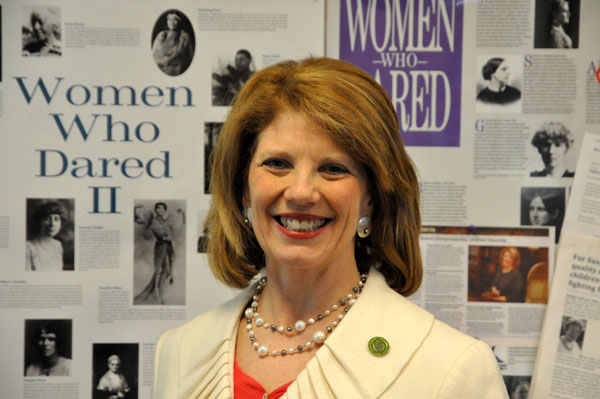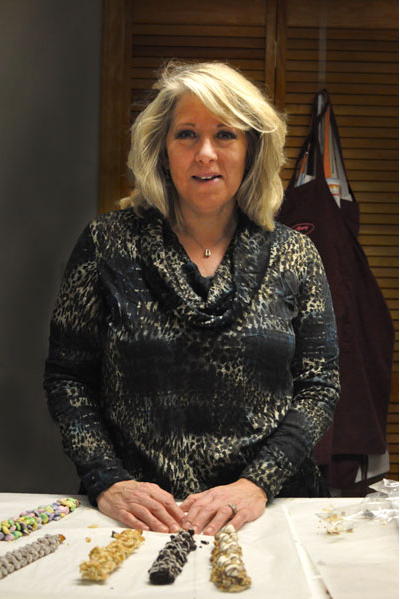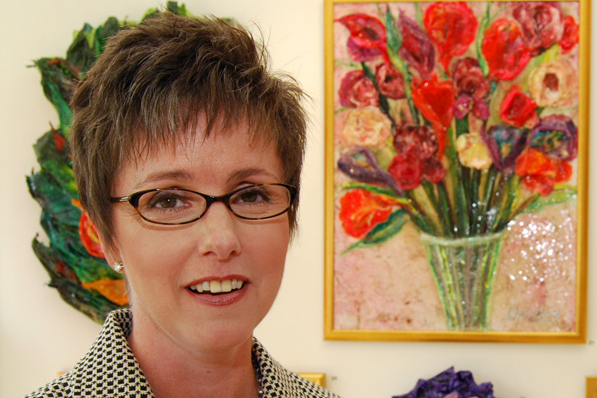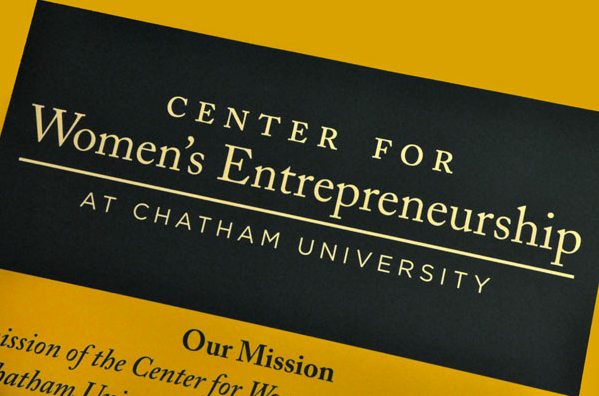If you’re the owner of a privately-held business, there’s a 50/50 chance you’re a woman. But there’s only a one in five chance your business has revenue over $1 million.
“There is obviously some kind of ecosystem problem,” argues Rebecca Harris, director of Chatham’s Center for Women’s Entrepreneurship. Harris has come across women owners who wouldn’t grow revenue over $50,000, who weren’t hiring, weren’t taking out loans, and had no long term plans.
“Women are inherently more risk adverse,” Harris says. “Men in similar positions would go for it. Growing their businesses mean they are putting dollars back into the economy. So at the CWE we needed to offer a continuum of services for women with businesses in growth industries.”
There are plenty of resources to nurture new business in Pittsburgh. Hustle Den supports new enterprise while Innovation Works supplies investment. Urban 21 Innovation focuses on innovation in underserved communities and Diversity Business Resource Center specifically supports diverse entrepreneurs such as minorities, women and veterans.
But two groups, MyBoard from CWE and PowerLink specifically seek to grow local women-owned businesses past the million-dark mark.
The newly launched MyBoard from CWE is designed to reach that mark by offering a board of mentors. In its first year, the current class includes 10 business owners and 40 mentors. Each business owner works with about four mentors.
Mentees, who own businesses in food services, retail and manufacturing, meet with mentors both in person and virtually to accommodate busy schedules. Mentors are women and men, not all from Pittsburgh, with experience in finance, marketing, branding, and infrastructure.
“Mentors must be able to dedicate the time to the project, have the ability to listen, and ask open-ended questions,” Harris explains. “They need to provide a risk-free environment for business owners to test new ideas, to strategize, and look at critical issues.”
To qualify as a mentee, MyBoard staff look at the size, revenue, growth potential and how long a business has been established.
One company that made the cut is Sheri Powell’s Pretzel Crazy, which has been in business for five years. She joined the first class to focus on her long term strategic plan.
“I had a specific plan in mind for where I wanted it to go but it was going in a direction I couldn’t sustain,” Powell explains. “It’s successful and prosperous, but I needed help to see if it was viable to go in the direction I originally planned.”
As she soon discovered, women business owners who participate in this program need to be ready to be completely open with their board.
“I would consider myself a risk-taker but I was in shock when they asked for my financials,” admits Powell. “I don’t know any business person that would give that out to five strangers, but aside from that I was willing. I was really tired of getting of suggestions from people who knew me and thought they knew the business.”
Anita Brattina also felt reluctant back in 1992 working with her first board from PowerLink, a program that assembles and maintains advisory boards for women business owners.
“Why would I want eight strangers to walk into my business and tell me what to do? I said no four times, but the fifth time I said yes, and it was a great experience,” Brattina recalls. “I owned a marketing company and we quadrupled in revenue in 18 months because of the board. We hired more people, we got more customers, we made more money, all the good things.”
Brattina was an early adopter of PowerLink back when PowerLink was brand-new. Over the past twenty years PowerLink has assembled and managed advisory boards to assist 200 women-owned businesses to clarify strategic goals and grow their business, according to Lee Ann Munger, PowerLink Director.
After her successful experience as a mentee, Brattina became a mentor on a PowerLink ten years later.
“A board is very interesting, it has components that a pure mentor doesn’t have,” says Brattina in describing her board. “There’s a founder, someone who’s started something from scratch and grew it substantially, balanced with experts in marketing, technology, finance, and investment. They help us with continuous improvement, how to behave as founders, how to make decisions on pricing, marketing strategy, and margin.”
Brattina was the CEO/Founder when she volunteered as a mentor for PowerLink. A key lesson from that Board experience? Most business problems aren’t new.
“I learned there is a pattern to some problems,” Brattina recalls. “What was a huge problem to my mentee was a problem all the mentors had experienced. She was so worried, but we were all like, ‘this is fixable. Here are three or four ways you could solve this, not just one.’”
Until their recent strategic alliance with Seton Hill University’s E-Magnify Women’s Business Center, PowerLink was only able to provide support for the advisory boards for one year. The new alliance means expanded resources for PowerLink.
“What we found is that the advisory boards are a great resource but keeping it running is a big challenge. When we would step away it was rare the board would continue without our support,” Munger explains. “Now there’s no limit. We have boards that have been operating for three years and we will run it for her as long as she’d like to have it.”
Brattina now runs a new company, All Facilities Energy Group, an Innovation Works portfolio company, and has again worked with a PowerLink board, this time for two years. All Facilities tripled in both size and revenue after working with their PowerLink board.
“I got over the reluctance to share info in 1992 once I realized what a difference it made,” Brattina says. “I learned that if you could name your problem you could fix it and in business there’s always someone smarter than you. We don’t want to reveal our problems, but the truth is, there are a lot of common problems and there are people out there who’ve figured it out,” says Brattina.
Making a million
Munger acknowledges that most businesses in this country are very, very small and it’s a very difficult milestone forcompanies to reach that million-dollar revenue mark.
“If your intention is to keep it small, that’s great,” says Munger. “But if your goal is growth, we’re interested in programs that will drive that growth. About three percent of women-owned businesses in the nation have revenue over $1 million while 32% of Pittsburgh women-owned PowerLink companies surpassed $1million after engaging their board.
“We can’t take full credit but it’s very powerful where you’re doing something to get a company over that mark.”
Photographs copyright Brian Cohen





